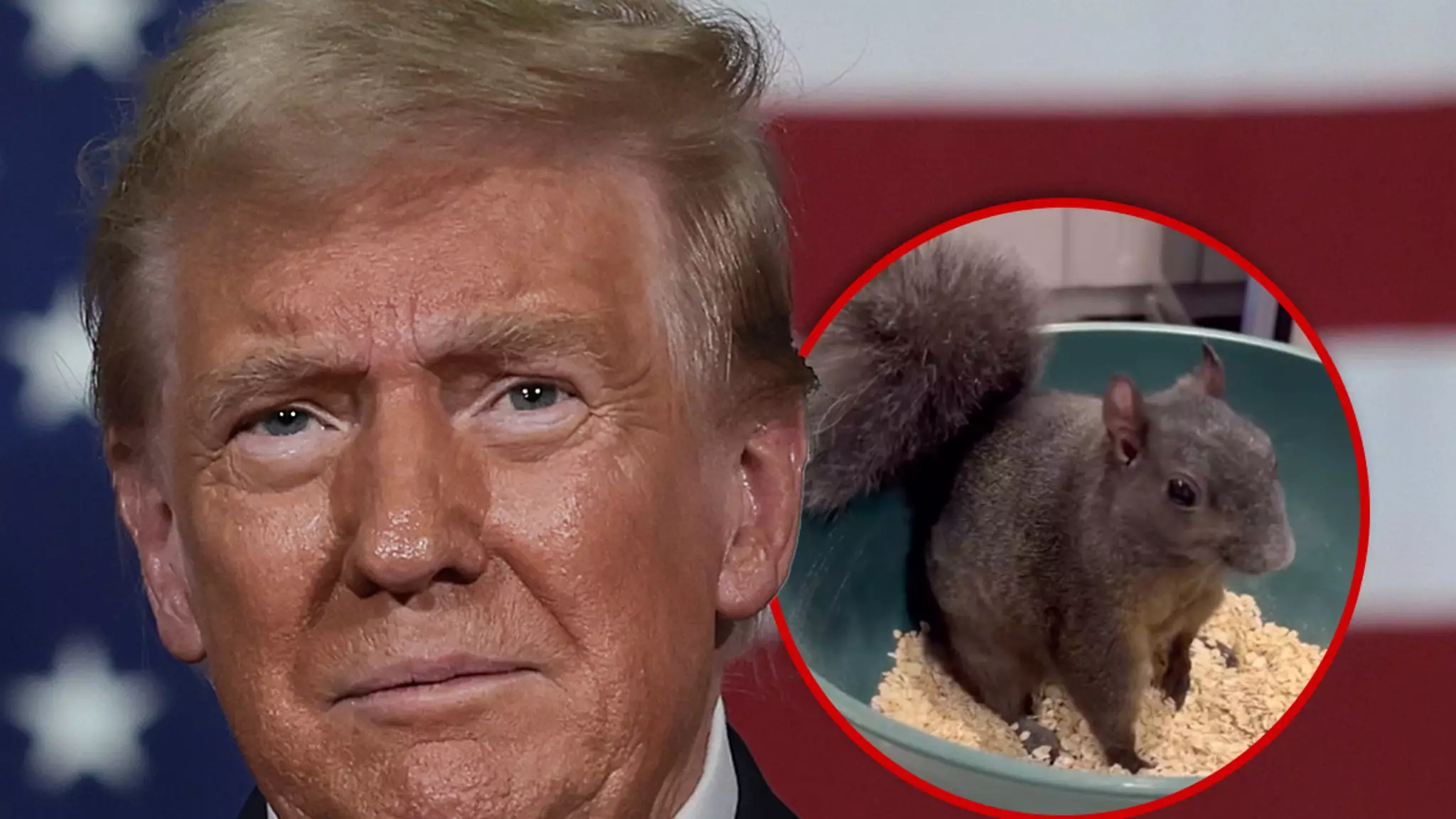The online world erupted into a whirlwind of reactions on Saturday morning when a fabricated press release purportedly from Donald Trump’s campaign circulated, demanding justice for a pet squirrel named Peanut. The statement attributed to Trump caused a significant stir on social media platforms, particularly X (formerly known as Twitter), before being debunked as an elaborate hoax by the news outlet TMZ. The incident not only highlights the potential for misinformation to gain traction online but also raises questions about the influence of social media in amplifying outrage—especially concerning animal welfare issues.
In the alleged statement, Trump was quoted making outlandish claims regarding Peanut’s treatment, suggesting that if the squirrel had been able to communicate his origins from Mexico, he would have received preferential treatment instead of being seized and euthanized by authorities. This absurd narrative struck a chord with many users on X, resulting in a proliferation of creative content, including AI-generated artwork featuring Trump and Peanut. Such artistic expressions served to satirize the situation and exemplified how quickly a faux narrative can propel public engagement.
While Trump’s actual spokesperson Steven Cheung clarified that the press release was a farce, the episode unearthed an existing outrage surrounding the state’s decision to euthanize the squirrel. This incident echoes a broader trend wherein social media transforms genuine issues into viral moments, often overshadowing the real stories behind them.
The backdrop to this chaos is a poignant tale of loss and alleged injustice surrounding Peanut’s owners, Mark Longo and his wife, Daniela. Despite the legality of owning a pet squirrel in New York, the couple insists that their beloved Peanut was not being hidden from authorities. Known for their substantial social media following that amassed over 532,000 followers on Instagram, Peanut was not just a pet but an integral part of their lives and their nonprofit organization, P’Nuts Freedom Farm Animal Sanctuary.
The couple claimed that anonymous complaints had led to a search warrant being issued, culminating in the heartbreaking seizure and subsequent euthanization of Peanut. In interviews, they expressed a determination to fight against what they viewed as an abuse of power by government officials, arguing that taxpayer funds were misallocated in removing and killing their beloved pet. Their story resonates more deeply now, amidst the chaos generated by the fabricated press release.
The incident surrounding Peanut the squirrel serves as a multifaceted commentary on society’s engagement with social media and the rapid dissemination of misleading information. While the hoax was ultimately unveiled, its ability to generate widespread commentary and artwork reflects the power of storytelling in the digital age. As the saga continues—or perhaps fades into obscurity—what remains is a vivid example of how pet ownership, responsible governance, and viral media can intertwine, igniting conversations that demand attention and accountability. Additionally, it serves a critical reminder of the potential consequences of misinformation and the importance of verifying the credibility of emerging narratives in the hyper-connected world we inhabit today.

